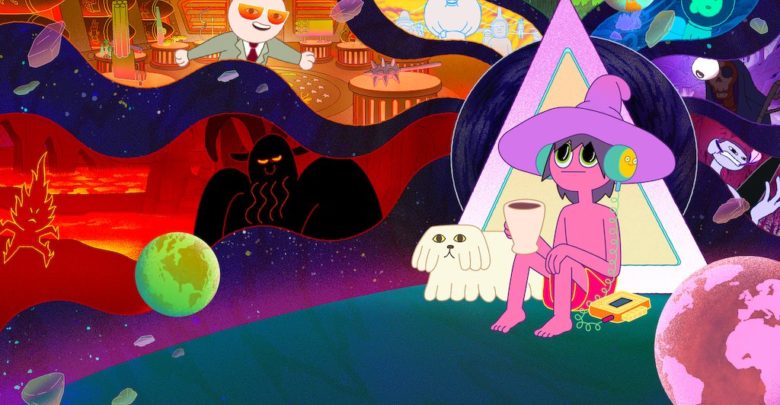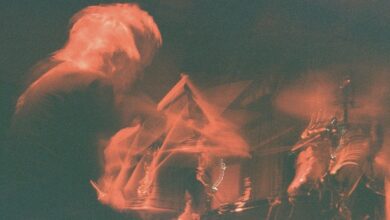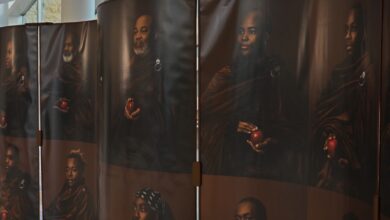Netflix Review: The Midnight Gospel
From the creators of Adventure Time comes a surreal conversation about existence, simulations and the many endings of the universe
 Netflix
NetflixQuarantine has put me in a very introspective and reflective mood as of late; there is no time where I feel this as intensely as when the clock creeps closer to midnight. Like many others, my roommate and I have been watching new Netflix releases after work to pass the time. One evening, I idly pressed play on the first episode of The Midnight Gospel.
What I expected was a hilarious cartoon with eye-catching visuals à la Adventure Time creator, Pendleton Ward. What I encountered was a life affirming spiritual exploration.
The Midnight Gospel is an adult animated show that centres around the main character Clancy’s titular ‘space-cast’ (space-wide podcast). He owns an extraordinary bio-computer that is capable of simulating universes and planets. More importantly, Clancy’s computer simulates residents within that universe — residents that he visits and interviews for his space-cast.
The conversations Clancy has with the denizens of his simulated universes are profoundly touching. The deeply philosophical interviews are derived from real life interviews by Clancy voice actor, Duncan Trussel, on his podcast The Duncan Trussell Family Hour. Clancy and his guests discuss the complexities of life and existence, mysticism and reality, and even loss and death.
What makes The Midnight Gospel so special is the interaction between the conversations’ subject matter and the stunning visual landscape Pendleton Ward creates and unfolds. Ward’s penchant for shrouding ultra-violence in colourful, cartoonish pastels creates unbelievable scenes. Through the course of the show, the deep philosophical matter is complemented, contrasted, or exactly represented in fascinating and creative ways.
One episode highlights a conversation about dogma and fate whilst characters beat zombies into a pulp. In another episode, we watch as Clancy and his space cattle interviewee are hunted, pulverized into ground meat, and transported as food while discussing forgiveness and regret. Words fail to capture the sheer imagination behind The Midnight Gospel. The show unpredictably shifts into and out of this fantastical world into meta conversations about the world that we, the viewers, live in. You can watch it over and over again and find new meaning in what is being said, what is being seen, or everything in between.
In a Western culture imbued with capitalism and secularism, conversations about deep spirituality aren’t necessarily in vogue. The Midnight Gospel is, in my mind, required watching for those of us in our early-to-mid twenties. It’s a crash course on big ideas in Hinduism, Secularism, Buddhism and on the most superficial level humanity itself. Watch it at midnight. Hell, maybe watch it after smoking a joint. Thank me later.




